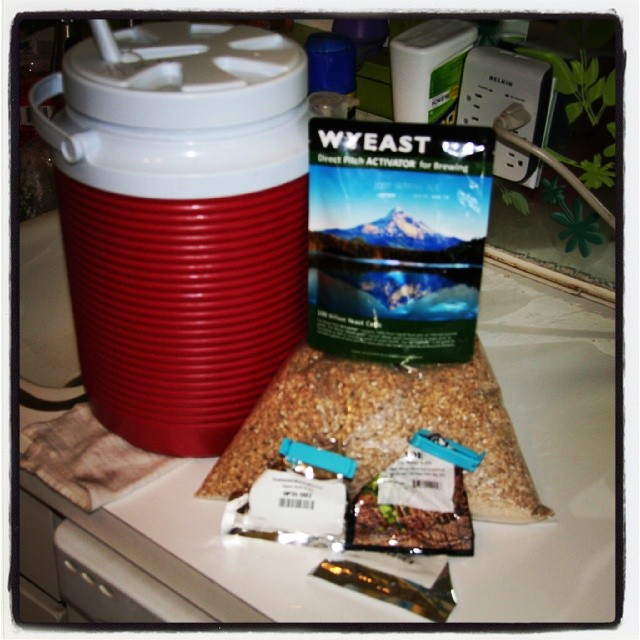nicklawmusic
Well-Known Member
Hi there,
I've been brewing using beer kits and additions (such as hops, steeping grains, etc) since January and, although the beer I've made is nice, I can tell the difference between that and a craft beer bought from the shop.
I'm wondering whether I should either go all grain or at least partial mash. I don't have the finances to buy a propane burner and all that, but I could make a mash tun from a 24ltr cooler and do a boiler on the stove , topping it off with cold water.
Does anyone have any advice they can give me or should I persist with the extract beers?
Emmanuales | #WhatWouldJesusBrew?
nick-law.com
I've been brewing using beer kits and additions (such as hops, steeping grains, etc) since January and, although the beer I've made is nice, I can tell the difference between that and a craft beer bought from the shop.
I'm wondering whether I should either go all grain or at least partial mash. I don't have the finances to buy a propane burner and all that, but I could make a mash tun from a 24ltr cooler and do a boiler on the stove , topping it off with cold water.
Does anyone have any advice they can give me or should I persist with the extract beers?
Emmanuales | #WhatWouldJesusBrew?
nick-law.com





















































![Craft A Brew - Safale BE-256 Yeast - Fermentis - Belgian Ale Dry Yeast - For Belgian & Strong Ales - Ingredients for Home Brewing - Beer Making Supplies - [3 Pack]](https://m.media-amazon.com/images/I/51bcKEwQmWL._SL500_.jpg)







